Treatment of Prostate Cancer by Lutetium 177-PSMA (LU-177)
Treatment prices are regulated by national law of the corresponding countries, but can also include additional hospital coefficients. In order to receive the individual cost calculation, please send us the request and medical records.
Prostate Cancer Treatment
- Prostate cancer
- Prostate cancer | PSMA-PET
- Radiation therapy
- High intensity focused ultrasound (HIFU)
- Brachytherapy
- Transurethral electroresection
- Radical prostatectomy
- Da Vinci prostatectomy
- Intensity-modulated radiation therapy (IMRT)
- Proton Therapy
- Irreversible electroporation (NanoKnife)
- Photodynamic therapy

Department of Nuclear Medicine
The Department of Nuclear Medicine offers the full range of diagnostic and therapeutic procedures using modern radioactive substances. The diagnostic options include scintigraphic studies of the lungs, heart, brain, kidneys, lymph nodes, bones, including in small patients. In the field of therapy, one of the priority focuses is the use of radioiodine therapy for thyroid pathologies. Medical care and patient care are provided by highly qualified doctors and nursing staff who believe that the health and wellbeing of their patients is a top priority.
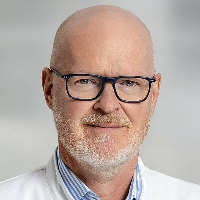

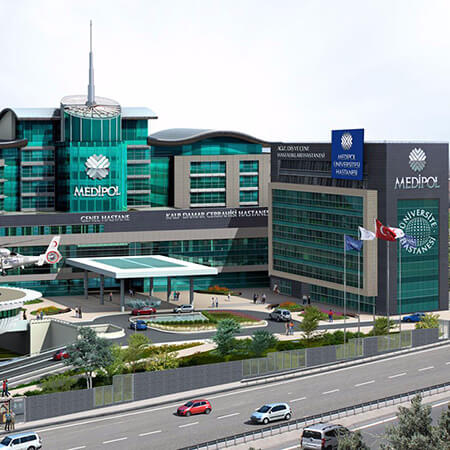
Department of Nuclear Medicine
The Department of Nuclear Medicine offers the full range of radioisotope diagnostics and treatment of various pathologies. All procedures are carried out using ultramodern equipment, so that the patient receives a minimum dose of radiation. The department's specialists mostly perform scintigraphy, PET-CT, SPECT-CT, etc. These serve to imagine the anatomical structure and assess the function of the heart, kidneys, lungs, thyroid gland, liver, brain, skeletal bones, etc. The department is one of the few in Turkey with the cutting-edge imaging diagnostic devices, which guarantee the highest possible accuracy.
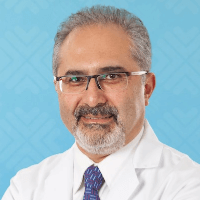
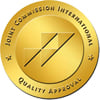
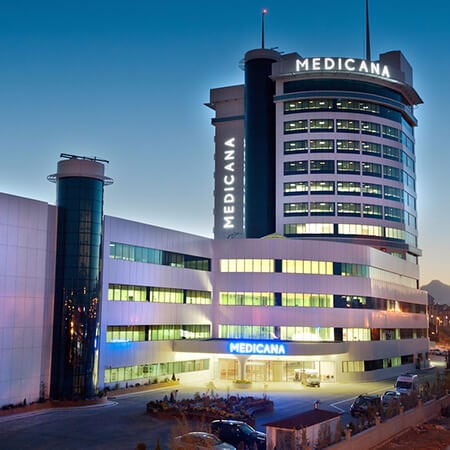
Department of Nuclear Medicine
The Department of Nuclear Medicine offers the full range of radionuclide diagnostics and treatment methods. The main fields of their usage are oncology, cardiology and neurology. The department's specialists have at their disposal the cutting-edge PET-CT Discovery IQ devices, gamma cameras and scintigraphy systems, which provide the most detailed imaging of pathological changes, assessment of their localization, structure and spread.
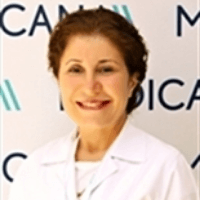

"Oncology is not a sentence, just a diagnosis." This statement clearly describes a problem of prostate cancer, which with timely diagnosis and correct management can be eliminated. Comprehensive tactics for this disease saves many patients, but not all of them show a satisfactory response to conventional therapy. The latter includes those who are most vulnerable and resistant to conventional treatments.
Content
- Treatment options for prostate cancer
- Advanced prostate cancer: treatment specifics
- Peculiarities of Lutetium-177 PSMA therapy
- Before starting the therapy
- How is Lutetium-177 PSMA therapy carried out?
- Complications you have to know about
- The cost of treatment in Europe
- Treatment abroad with Booking Health
Treatment options for prostate cancer
Ways and means of medical treatment for prostate cancer depend on the extent of tumor spread, so the doctor needs to determine the stage to get the best result. The advantages and disadvantages of each type of medical treatment are important for both the patient and the doctor when determining treatment tactics. Below are detailed descriptions of the four stages of prostate cancer and their treatment principles.
At the first stage, the tumor is confined to the prostate gland, being too small to be detected by a physical examination, but it is detectable by other methods of clinical diagnostics. This stage is not clinically apparent, and proper treatment can lead to a complete cure. The treatment methods for stage 1 prostate cancer are surgery and radiation therapy.
The surgical removal of the prostate gland is called a prostatectomy and may be performed in the early stages of the disease to prevent the tumor from spreading. It often involves removing the pelvic lymph nodes, because they are located near the prostate gland and may be the first place to be affected by the tumor. As with many surgical procedures, postoperative complications can occur, which require close attention, because those are usually impotence and urinary incontinence. Previously, urinary incontinence occurred in a significant percentage of cases, but the very latest surgical techniques minimize this risk.
At the second stage, the tumor is still localized in the prostate gland but is detectable by physical examination. Tumor-related symptoms are often absent at this stage. Stage 2 prostate cancer may be considered "curable", and treatment options usually include prostatectomy and radiation therapy, as for the stage 1 prostate cancer.
At stage 3, the tumor extends to the adjacent areas. At this stage, urinary disorders are the symptoms of oncology. The goal of medical treatment at stage 3 is to limit the spread of prostate cancer with metastases and relieve its symptoms, which can be accomplished by surgery or radiotherapy.
Stage 3 can be treated with hormone therapy, that is meant to lower hormone production as it positively influences the multiplication of malignant cells. A conventional way to achieve that is the excision of the testicles, which can be performed as an outpatient procedure, but usually requires hospitalization and general anesthesia. Removing the testicles results in testosterone reduction and relieves pain, urinary distress, and other symptoms associated with the condition.
The use of LH analogs is another option. When LH analogs are taken monthly, hormone production is also stopped. Accordingly, pain, urinary distress, and other symptoms are effectively relieved. Typically, drugs are injected monthly in a clinical setting, although self-treatment under medical supervision is also possible. Aftereffects are similar to those after orchiectomy, including impotence and hot flashes; a temporary worsening of symptoms in the first few weeks can be noticed.
At the fourth stage, cancer goes beyond the primary organ, most commonly to the skeletal bones and the lymphatic system. Urinary disorders, bone pain, weight loss, and fatigue are the symptoms at this stage. This stage of prostate cancer is commonly treated with various drug therapies; surgery is not actively used for the lack of efficacy. The goal of the different treatments is the same – to spare the patient from pain.
This is a single intravenous infusion of Lutetium-177 solution. PSMA therapy with Lutetium-177 is indicated even if all other treatments have failed.
The radionuclide Lutetium-177 finds prostate cancer cells anywhere in the body and destroys them. This is especially important in bone metastases and metastases in internal organs. PSMA therapy with Lutetium-177 is performed at advanced cancer stages.
| Country | Average cost of treatment |
|---|---|
| Germany | 18,010 EUR |
| Turkey | 12,600 EUR |
| Austria | 12,000 EUR |
The best hospitals for metastatic prostate cancer therapy are:
- Helios Hospital Berlin-Buch
- University Hospital Rechts der Isar Munich
- University Hospital of Ludwig Maximilian University of Munich
- University Hospital Frankfurt-am-Main
- University Hospital Carl Gustav Carus Dresden
Advanced prostate cancer: treatment specifics
An already disseminated pathology is usually not curable, but the treatment of patients with metastatic prostate cancer aims to relieve the symptoms. First-line treatment for advanced prostate cancer involves therapy with medication, i.e. hormone-targeted therapy and chemotherapy. Certain radiotherapy techniques are able to control the manifestations of the disease, even with multiple metastases. A complex of targeted radiation therapy and drug therapy is also effective for advanced stages of the disease. Mentioned techniques can give good results for a significant period of time, however, sooner or later, the therapy becomes not enough. In such situations, second-line treatment with radioactive medication penetrating the bone tissue is carried out. This approach is safe and efficient, provided that the malignant cells are only found in the bone tissue.
Every year, more new approaches to cancer therapy appear. In recent years, oncologists prefer to use drugs that kill cancer cells directly. This treatment approach is effective and safe and has received many positive recommendations. Targeted treatment helps to get rid of neuroendocrine tumors, thyroid cancer, some types of brain malignancies, as well as prostate cancer.
So, we are primarily talking about radionuclide therapy, which is a modern technique, combining the unique capabilities of nuclear fusion and directional radiation exposure. Unfortunately, it is only possible to undergo such treatment abroad, for example, in European hospitals. The principle of radionuclide cancer therapy is to introduce special medications containing radionuclides into the human body. Such pharmaceuticals get directly to the affected areas, so the radiation is targeted (does not affect the entire body, but affects specifically the cancer sites). The medication injected during the radionuclide treatment accumulates in the affected area: the primary tumor or metastases. It irradiates the neoplasm, leading to its destruction. Surrounding tissues, healthy structures, and the entire body are minimally affected.
A unique achievement of radionuclide therapy is the technique of Lutetium-177 PSMA for patients with prostate cancer. According to the world's leading oncologists, such an approach can help cancer patients who have lost hope of a cure.
The treatment of metastatic prostate cancer overall is difficult because it often causes symptomatic complications and the disease relapses despite the treatment. The latest results of the clinical studies show that in severe cases of advanced prostate cancer, the combination of the Lutetium PSMA therapy (which is mostly considered an alternative to conventional techniques) with the classical treatment protocols is a very efficient therapy in comparison to hormonal therapy and chemotherapy.
Peculiarities of Lutetium-177 PSMA therapy
Lutetium-177 is a representative of a group of radiopharmaceuticals used exclusively for radionuclide therapy. This medication is based on a radionuclide of the natural isotope composition Lu-177, and its constituent components in turn are lutetium particles. In addition, the drug molecule has in its composition a transport part – a protein molecule that can recognize the desired protein-receptor localized on the surface of the cells of a neoplasm and come into contact with it. A radioactive component (particles and lutetium compounds) is attached to such a transport protein, which allows targeted delivery of the radionuclide to malignant cells in order to destroy them.
Patients with metastatic prostate cancer are often prescribed Lu-177 PSMA therapy, as a frequent technique of choice for pathology that is not responsive to residual methods of treatment. In many cases, this treatment has shown successful results in reducing the diameter of the neoplasms.
To date, therapy with Lutetium-177 is not available in all countries of the world. This innovative method is available in European hospitals. Therefore, many men with prostate cancer undergo treatment in Europe to take advantage of this therapy.
American's Victory: How Lutetium-177 in Germany Changed John Baker's Cancer Story
Before starting the therapy
First off, the therapy is applicable to patients with neoplasms with enough reactivity of prostate specific membrane antigen in the cellular structure of the tumor that is no longer activated by other treatments. And therefore, before starting this specific therapy for the treatment, the PSMA levels and the indications for the PSMA technique must first be checked. This is the universal principle at European hospitals. Another obligatory condition is the patient having normal kidney and bone marrow function.
Potential causes that may be a contraindication to this technique are conditions such as:
- Severe liver and kidney dysfunction.
- Severe chronic or autoimmune diseases.
- Recent chemotherapy (less than 4 weeks) or bone-specific radionuclide therapy (less than 8 weeks), or irradiation of a large area of the musculoskeletal system.
- Brain metastases with signs of compression.
How is Lutetium-177 PSMA therapy carried out?
Well, briefly, during treatment in Europe, this therapy requires short-term hospitalization. During the hospitalization period (3-4 days), it is mandatory to undergo the necessary initial and additional examinations, receive a course of therapy, and remain under observation for a couple of days. The initial examination is conducted to confirm the diagnosis and substantiate the condition suitable for this type of therapy, mostly by the means of the PSMA PET. In addition, laboratory and instrumental methods of clinical diagnostics will help detect changes in the patient's condition that may hinder Lutetium-177 PSMA therapy.
The drug is given in courses: singular administration per session. The infusion of the radioactive drug is conducted in the ward. The procedure lasts no more than 15 minutes. Over the first two days, the drug is actively excreted with the body fluids.
The dose, interval of administration, and a number of courses are calculated individually depending on the peculiarities of the tumor and the patient's condition. Lu-177 is administered as an intravenous injection. The drug rapidly connects with PSMA and penetrates the cells. Beforehand, to protect the kidney function, an infusion of saline solutions is given. To reduce kidney damage, fluid infusions are administered through a vein immediately on the days following therapy.
Scintigraphy is done and blood samples are collected in the days after the treatment to check how the drug is excreted from the body. For this purpose, the patient stays in the hospital setting for some time. After the discharge, clinical monitoring of functional parameters is repetitively done every several weeks. This can be completed at other hospitals close to home.
Before discharge, the patient will be informed in detail about examinations that would have to be repeated.
According to the tests, several days after Lutetium-177 PSMA therapy has been administered, the radiation from the patient's biological fluids and tissues becomes minimal.
Complications you have to know about
The implementation of therapy into clinical practice shows that no serious complications are to be feared. However, despite all efforts, the therapy can lead to complications. Since the treatment is experimental, previously unknown risks, and complications cannot be ruled out. These may include:
- Theoretical allergic reactions after drug administration, including anaphylactic shock (however, it has not been registered before).
- Occasionally minor hair loss in the weeks following therapy.
- Changes in taste (rarely).
- Fatigue and exhaustion (can last up to several weeks after therapy).
Repeated therapy may affect renal function, so it should be checked before each course. In some cases, it may lead to a permanent loss of renal function with the need for dialysis. In addition, the continuous course of therapy may decrease saliva production and facilitate the appearance of the so-called dry mouth, which, in turn, can lead to the higher incidence of tooth decay. Temporary changes in taste may also occur as a result of treatment.
Generally, radiation is related to a risk of secondary malignancies, but such incidences with PSMA therapy are quite rare.
The cost of treatment in Europe
Preliminary determination of the exact cost of treatment abroad or treatment in Europe in particular is always difficult, since preliminary calculation does not usually take into account prices for additional procedures or diagnostic measures that may be required further into the treatment. In practice, the preliminary cost of treatment in Europe often differs in reality, and therefore the pre-calculated cost of treatment will be adjusted up or down.
Therefore, it is only possible to get acquainted with the prices of prostate cancer treatment in Europe in terms of individual procedures beforehand. If you wish to receive an individual offer with the calculation of the approximate price, please use the contact form on the website. The usual cost of Lutetium-177 PSMA therapy for prostate cancer is between 22,700 EUR and 44,000 EUR.
If you have any questions, do not hesitate to contact Booking Health. We will advise you on the price of the course of treatment, and make an appointment.
Treatment abroad with Booking Health
Treatment in Europe offers patients access to innovative therapy methods, including Lu-177 therapy. Booking Health will help you arrange therapy at the best medical centers in Europe. We can select the best doctor and clinics based on specialization, therapy efficiency, risk of complications, cost of treatment, and other factors.
Booking Health provides:
- Services of communication with the hospital (before treatment, during treatment, and after the completion of the medical care program).
- Control of the therapy program at all stages.
- Shortening of waiting times for therapy.
- Moderate cost of treatment in Europe.
- Assistance with travel arrangements (paperwork, etc.).
- Arrangement of additional procedures (if necessary).
- Control of invoices, a full refund of unspent finances.
Booking Health provides high-quality service, while always being there for you.
Feel free to contact Booking Health if you have any questions. To do that, fill in the request form on the website and we will contact you as soon as we can.
Authors:
The article was edited by medical experts, board-certified doctors Dr. Nadezhda Ivanisova and Dr. Vadim Zhiliuk. For the treatment of the conditions referred to in the article, you must consult a doctor; the information in the article is not intended for self-medication!
Sources:

